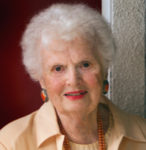Large affairs are not performed by muscle, speed, nimbleness, but by reflection, character, judgment. In age, these qualities are not
diminished but augmented ~ Marcus Tullius Cicero (106–43 BC) at age 62
By Natasha Josefowitz, ACSW, Ph.D.

LA JOLLA, California — If we don’t want wrinkles and grey hair, we’ll have to die young! As this is not something worth considering, let us examine the alternative: aging. More than 10,000 people turn 65 every day in the United States, and people are living longer. In 2019, the average life expectancy of American men was 76 years, while for women it was 81. Accordingly, I am already living 15 years beyond what is projected. Until very recently, I thought of myself as old, that was until I realized it is my children who are old; I am in a new category called old-old.
I have begun to notice that formerly flat surfaces leading to my home have suddenly become small hills, that stairs have become steeper, grocery bags heavier, while newspapers are reducing the size of their print on a yearly basis and everyone around me has started to mumble.
Those aren’t the worst changes we face. Yes, we are forgetting everything! From the name of our best friend the moment we have to introduce her, to the phone number we were dialing two seconds ago. We think we have Alzheimer’s every time we misplace our keys, wallet, or the piece of paper upon which was written our list of things to remember.
I don’t remember my parents worrying about this loss of memory as much as all my friends and I do. Think of how much more is stored in our brains than a generation ago. We are overloaded with information, much of which is not pertinent to our daily lives. I know that I am more interested in and more knowledgeable about a host of significant as well as insignificant facts.
Bewildered as we may be by the overload of data, let’s take advantage of it. Some of the more fascinating, recent research centers on brain function. New discoveries show that our brains can keep growing until the day we die as long as we keep them active and challenged. New neurons grow and new synapses are made every time we take on a new mental effort, like learning a new language (which is the same as becoming adept at my computer). The problem stems from the fact that what I learn today, I forget tomorrow—unless I keep using it on a regular basis.
Communication has radically changed over the centuries—from cave paintings, smoke signals, and drumbeats to the written language; from letters on the Pony Express, the telegraph, and then telephones with party lines to landlines to cell phones. I don’t type anymore; I dictate with Siri correcting my spelling and Alexa functioning as my encyclopedia. I have talked to my doctors via TeleHealth, getting prescriptions sent directly to the pharmacy, who, in turn, deliver them to me the same day.
I record all TV shows and watch them at my leisure (skipping commercials!) As I don’t cook, I order meals by phone. Most restaurants have online menus for carry out or delivery services. Grocery stores deliver ready-made meals. I don’t shop in stores anymore and continue to contribute to the success of Amazon by getting everything I need online. I purchase clothes and shoes from catalogs with a return label included, so that I don’t even have to go to the post office or UPS to return any unwanted items. I bank online, exercise and attend committee meetings on Zoom. I work virtually with my assistant using FaceTime.
We live in a radically, fast-changing and ever-evolving world. We are the generation that dealt with one transition and is currently in the midst of the next one. We left the world of our parents, which was familiar and comfortable, to enter the new world of technology, unfamiliar and often stressful.
Today we are orbiting in a foreign world, a realm of artificial intelligence and holograms, without the usual accouterments of our lives, from the anticipated demise of post offices, newspapers, landlines, and checks. Books and music are accessed electronically, and soon it will be flying taxis and deliveries by drones…a world our parents could have hardly imagined. Our future will be both overwhelming and exciting. Will we be able to keep up? We will certainly try. We are the generation in transition.
*
© Natasha Josefowitz. This article appeared initially in the La Jolla Village News. You may comment to natasha.josefowitz@sdjewishworld.com